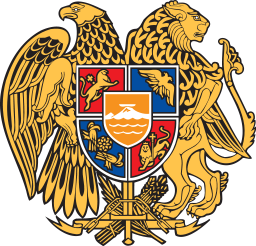The “European Union for Environment” (EU4Environment) Programme
Objective: To help the six partner countries preserve their natural capital and increase people’s environmental well-being, by supporting environment-related action, demonstrating and unlocking opportunities for greener growth, and setting mechanisms to better manage environmental risks and impacts.
Partner Countries: Armenia, Azerbaijan, Belarus, Georgia, Republic of Moldova, Ukraine
Duration: 2019-2024
Implementing Partners: OECD, UN Environment Programme, UNECE, UNIDO, the World Bank
Overall direction: DG NEAR and DG Environment of the European Commission
Actions are clustered around five priority results:
1. Greener Decision-Making
- Support to inter-ministerial policy dialogue platforms on green growth and to the integration of green economy targets and other sustainability issues into planning,
- Assistance with investment needs assessments,
- Support to reform of legislative frameworks of, and building implementation capacities for, strategic environmental assessment (SEA) and transboundary environmental impact assessment (EIA) that fully comply with international requirements,
- Awareness-raising on green economy, environmental action and sustainable lifestyles․
Implemented by: UNECE, UN Environment Programme and UNIDO (co-ordinator)
2. Circular Economy and New Growth Opportunities
- Assistance to Small and Medium Sized Enterprises (SMEs) to integrate sustainability factors in strategic and daily decision-making,
- Promotion of EU concepts and tools related to the Single Market for Green Products,
- Support for the elaboration and implementation of green public procurement policies,
- Tailored assistance to address waste management challenges,
- Technical assistance for reforms in priority green economy sectors (e.g. energy efficiency, agriculture/ food, construction, sustainable tourism or regional development),
- Assistance to ecological value-chain and product innovation among SMEs,
Implemented by: UN Environment Programme and UNIDO (co-ordinator)
3. An Environmental Level Playing Field
- Support to national authorities in establishing ‘smart’ regulations and policy instruments for promoting environmental performance of large enterprises and SMEs,
- Strengthening the effectiveness of compliance promotion and enforcement institutions and instruments to enhance compliance with environmental requirements,
- Assisting national authorities in designing and costing green public investment strategies and programmes,
- Supporting administrative capacity in environmental management,
- Training of a critical mass of key targeted civil servants and other stakeholders.
Implemented by: OECD
4. Ecosystem Services and Livelihoods
- Launching a shared network of protected areas involving EU and neighbouring countries,
- Support for community actions for forest conservation and sustainable use to increase non-timber goods production, energy efficiency related to biomass,
- Actions to limit the trade in illegal timber,
- Support for the identification and development of innovative financing schemes for sustainable management of ecosystem services.
Implemented by: the World Bank (tbc)
5. Knowledge Sharing and Coordination
- Strategic communication activities to raise visibility of actions,
- Regional coordination of different elements of the initiative,
- Monitoring of progress with integration of economic and environmental goals, and development of reports based on Green Growth Indicators.
Implemented by: OECD in cooperation with all Partners
The activity in Armenia
EU4Environment is helping Armenia finalize the Strategic Environmental Assessment (SEA) and Environmental Impact Assessment (EIA) laws, raise awareness campaigns, apply Resource Efficient and Cleaner Production (RECP) in SMEs activities, strengthen green regulations for enterprises and compliance assurance, reinforce policy dialogues on green finance and investment, assess and reinforce administrative capacity and develop Green Growth Indicators (GGIs).
Greening the economy is essential for economic growth, social and sustainable development. It can enhance productivity and innovation, create new jobs and markets, and generate additional fiscal revenue. In this context, Armenia developed a range of environmental policies and laws and incorporated sustainable development to its Strategic Development Programme for 2014-25.
BUSINESS ENVIRONMENT
(+374 11) 597 539
- BUSINESS ENVIRONMENT
- (+374 11) 597 539
TOURISM
(+374 11) 597 157
- TOURISM
- (+374 11) 597 157
QUALITY INFRASTRUCTURES
(+374 11) 597 167
- QUALITY INFRASTRUCTURES
- (+374 11) 597 167
PRODUCT LABORATORY TESTING
(+374 11) 597 166
- PRODUCT LABORATORY TESTING
- (+374 11) 597 166





